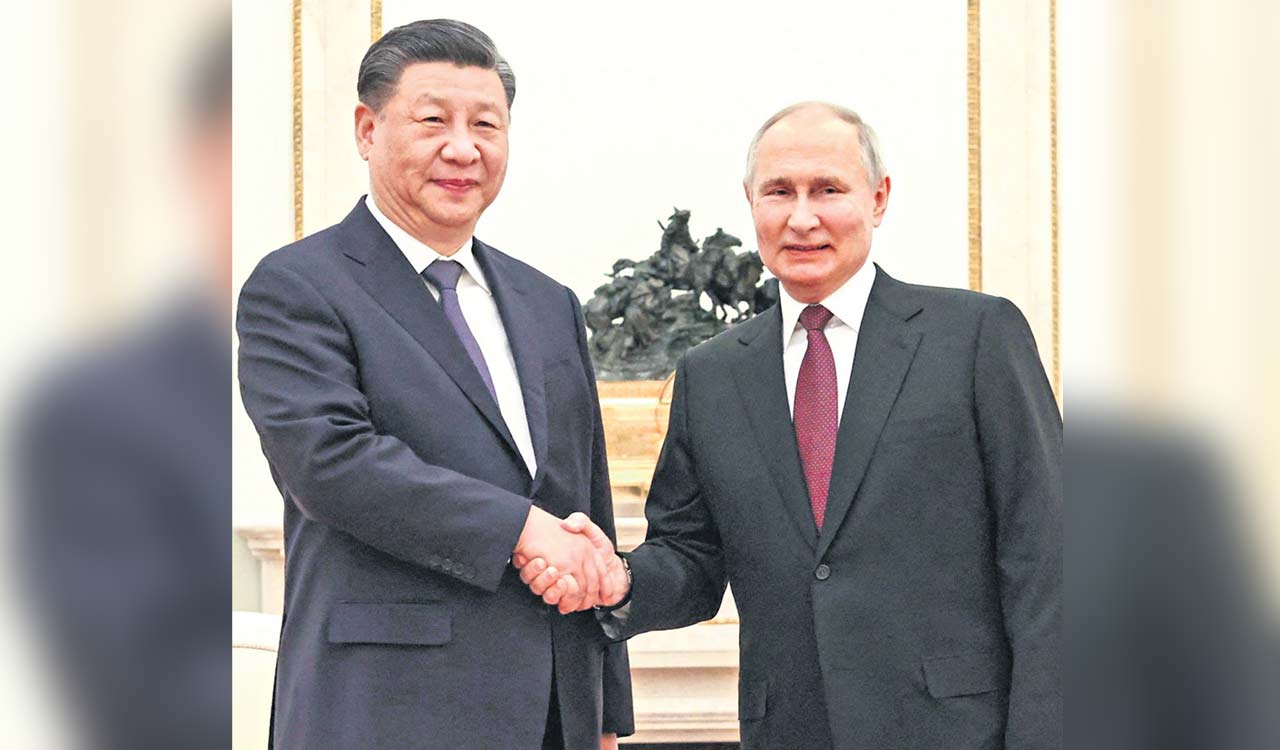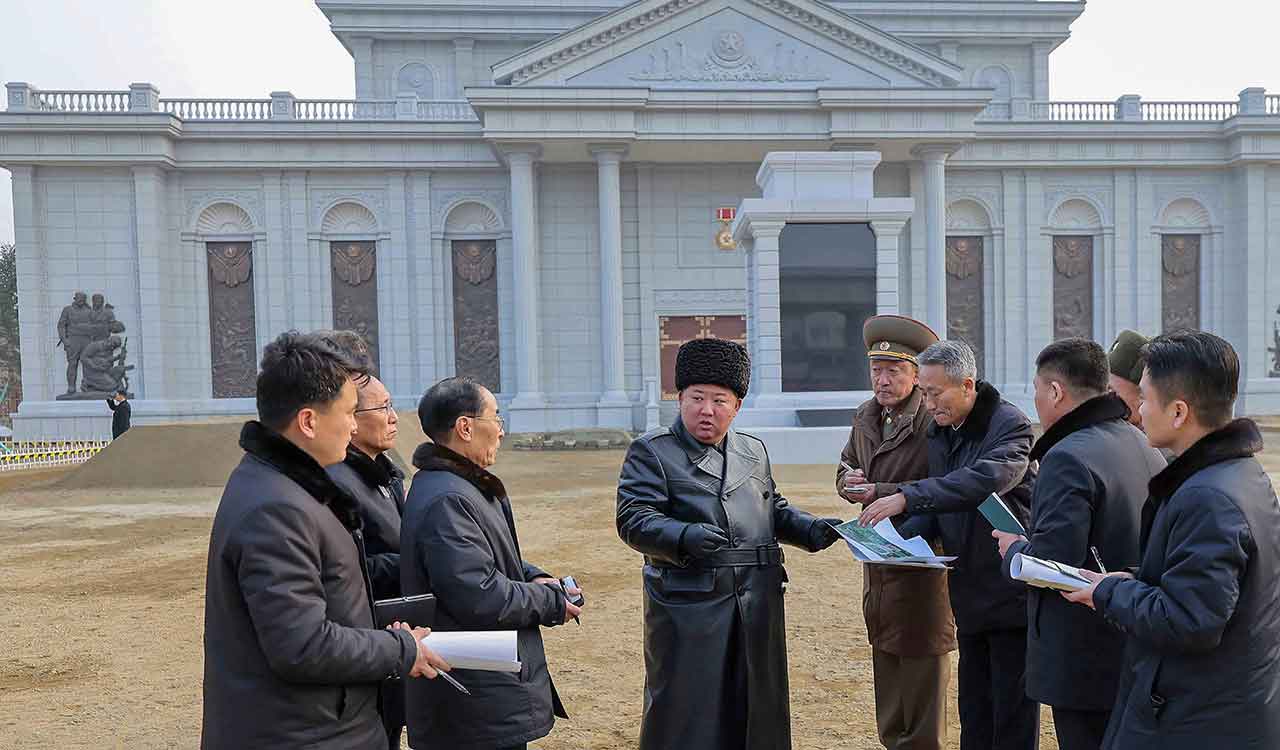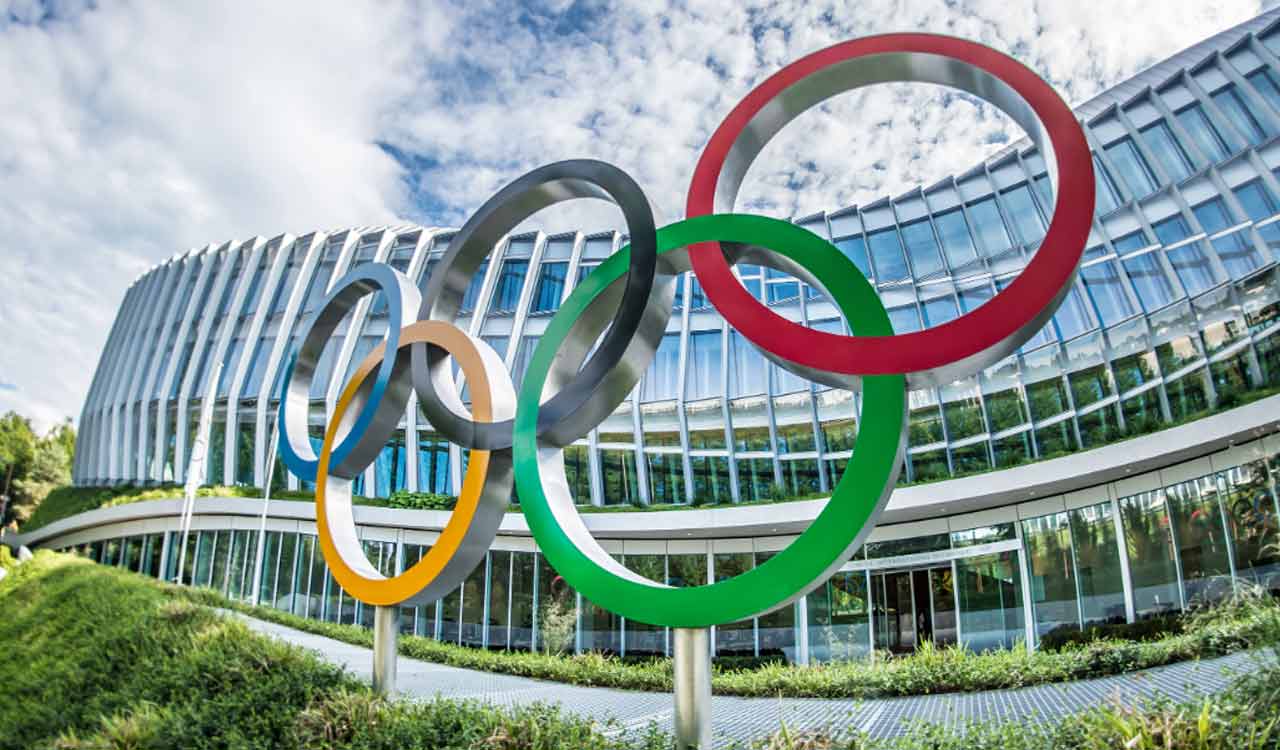Opinion: Can China end Ukraine war
A weakened West is in China’s best interest and it may want the Ukraine conflict to continue

By Dhananjay Tripathi
The simmering tension between Russia and Ukraine since 2014 escalated into a full-scale war in February 2022, and the conflict is ongoing. Despite efforts by the international community to bring peace, these attempts have been unsuccessful. While the West is putting utmost pressure on Russia through sanctions and coercive diplomacy, it has failed to make any substantial impact. There is also talk about how India and China can play a role in pacifying Russia.
Theoretically, it is fine to assume that China can be an important actor in persuading Russia to come to some agreement to end the war. However, several factors need to be examined before making any conclusive judgement about the possible intervention by China in this war. China may not like to act in haste and will weigh all the options, including the costs and benefits of this war.
This was evident in the recent Summit on Peace in Ukraine, which was held in Switzerland. China did not attend the summit, while India participated but refrained from signing the communique. Additionally, several other countries, including South Africa, Saudi Arabia, Indonesia and Mexico, did not sign the final communique. India expressed that without the participation of both conflicting parties, any endeavours towards peace may not succeed. Notably, Russia was not invited to this peace summit, and China’s absence from the summit in Switzerland raises questions. This article explores why China may not be interested in endorsing a peace initiative led by Western countries.
China and the West
China is a rising power with an economy of almost $18 trillion. It is a permanent member of the UNSC and desires to play a major role in world politics. The landscape of international relations, traditionally dominated by the West, has been changing with the steady growth of developing countries. In this, China’s story is unique. It is currently the world’s second-largest economy, ranks third in military power and holds the 12th position in the global innovation index. All these reflect China’s technological, military and economic influence worldwide. Despite this, the West does not view China as an equal based on established liberal international parameters. China is a Communist country, and over the years, the Communist Party of China has strengthened its position. This is a worrisome connotation for the West — the world’s leading power is governed by a Communist Party.
China, as the only major Communist country, developed closer political and economic ties with the Capitalist camp during the Cold War by establishing better relations with the US. In fact, it was America that approached China, due to the Cold War Politics, to alienate its arch-rival Soviet Union. In return, the US allowed its corporate sector to shift its manufacturing base to China because the labour there was much cheaper than in the West.
The big multinational giants headquartered in Western locations have greatly benefited from China’s economic openness, but they are concerned about Chinese companies making global inroads today. The primary concern is that Chinese companies are violating intellectual property rights. Additionally, the international community does not appreciate Chinese assertiveness, particularly in regions like the Indo-Pacific, which is relevant for international trade. Tensions between the US and China over Taiwan have further complicated their ties in the past.
However, significant economic interdependence or reliance on China leaves little leeway for the West and other countries to take a strong and critical position. China’s share of the global GDP is almost 17%, and it is the top trading partner of most strong economies and blocs of the world, including the US, Japan, South Korea, the European union and Asean. Nevertheless, there is a growing consensus in the West that China is a significant and potential challenge and a country that does not comply with the rules of the liberal world order. This is the reason why major world capitals are focusing on how to deal with China in the future.
New Western Perspective
The main reason for the Russia-Ukraine conflict is NATO’s expansion related to the proposed membership of Ukraine. Russia and China are critical of NATO. As a matter of fact, NATO regards Russia as a threat and keeps China in a similar category. China was mentioned in the 2019 London Summit of NATO and the 2021 Brussels Summit Communique; China received much more attention, including its growing nuclear arsenal being described as “a contrast to the fundamental values enshrined in the Washington Treaty”. The NATO Brussels Communique also expressed concerns about the growing military relationship between China and Russia, noting that “it is also cooperating militarily with Russia”. Looking ahead to 2023, the Vilnius NATO Summit Communique mentions, “China’s stated ambitions and coercive policies challenge our interests, security, and values”.
China has officially criticised the Vilnius Summit Communique and accused NATO of destabilising the Asia-Pacific region. Since Russia is at war with Ukraine, where the West backs the latter, China may not be interested in supporting the Western position. Many believe that the conflict in Ukraine marks the first significant challenge to the Western international order since the end of the Cold War. It is, therefore, likely that China will support Russia and may want the confrontation to continue. A weakened and preoccupied West is in China’s best interest. Furthermore, the alliance between Russia and China opens up possibilities for other countries to cooperate if they are not comfortable with the West. This kind of power dynamic has not been witnessed since the end of the Cold War.
From an economic standpoint, China has benefited significantly from the war. Trade between Russia and China has increased by over 65% since 2021, reaching a peak of $240 billion in 2023. Due to sanctions, China is now Russia’s primary source for several items, including some sophisticated technologies. The energy trade with Russia has also been profitable for China. Importantly, this trade is conducted in national currency, further solidifying Russia’s long-term dependence on China.
Advantage China
To summarise, the ongoing Russia-Ukraine conflict presents potential advantages for China on both theoretical and practical levels. In theory, China’s alignment with Russia stands to gain momentum, and China is actively seeking to reinforce relationships with nations that are uneasy about the Western-dominated world order. China has been making efforts to strengthen ties with countries in West Asia and Latin America. Strategically and economically, China is currently in a favourable position and is capable of addressing both internal and external challenges.
The Russia-Ukraine conflict does not pose a significant concern for China, and it is unlikely that China will act as the West hopes to stop the war. In May, China, along with Brazil, made a peace proposal, but not many consider it a serious attempt. However, it’s possible that China alone could take the lead in brokering an agreement between Russia and Ukraine in the future to demonstrate its influence.

(The author is Associate Professor, Department of International Relations, South Asian University, New Delhi)
Related News
-
North Korea opens new housing district for families of Ukraine war dead
-
Russian drone strike kills one in Odesa ahead of Geneva peace talks
-
Winter Olympics now set to have just 13 Russian athletes and 7 from Belarus competing
-
US security agreement for Ukraine is ‘100% ready’ to be signed, Zelenskyy says
-
25th batch of police canines, handlers pass out at IITA Moinabad
1 hour ago -
Kharge slams AI Summit management, alleges global embarrassment
1 hour ago -
PM Modi calls India AI Impact Expo 2026 powerful convergence
2 hours ago -
Writing code will not be main goal in AI era: Infosys Chairman
2 hours ago -
India contributes 16 per cent of world AI talent, white paper reveals
2 hours ago -
Kukatpally family conducts funeral after days of prayers for deceased
2 hours ago -
Hyderabad-based startup to begin human clinical trials for India’s first AI-driven antibiotic
2 hours ago -
Hyderabad: Mega job fair on February 23 at Red Rose Function Hall
3 hours ago




